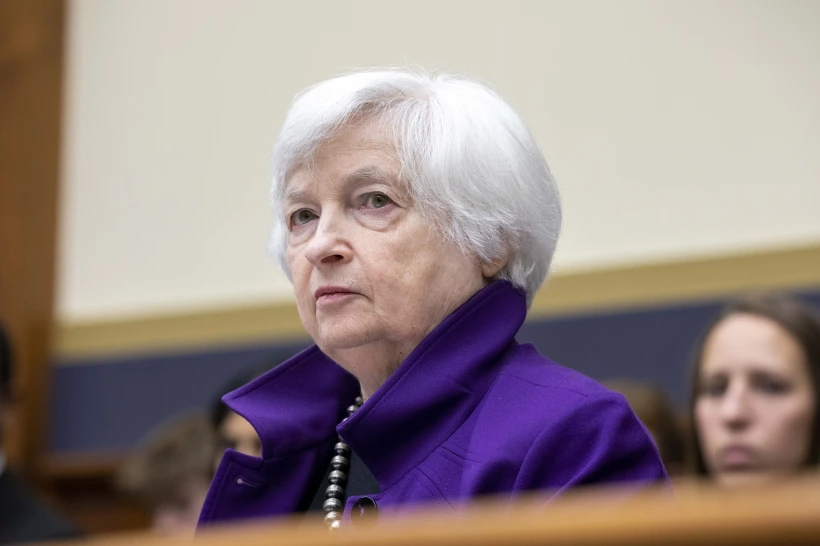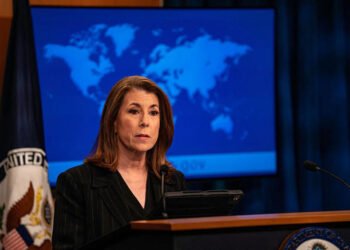The United States has accused Russia of using the choking agent, chloropicrin against Ukrainian soldiers and deploying riot control agents “as a method of warfare” in Ukraine.
This constitutes a breach of the global ban on chemical weapons
According to the US’s National Institute for Occupational Health and Safety, chloropicrin, a nearly colourless oily liquid causes severe irritation to the eyes, skin and lungs.
The chemical was used in large quantities during World War I.
While it continues to be used as an agricultural pesticide, its use in war is banned under the 1993 Chemical Weapons Convention (CWC).
In a statement, the U.S State Department said that the use of such chemicals “is not an isolated incident and is probably driven by Russian forces’ desire to dislodge Ukrainian forces from fortified positions and achieve tactical gains on the battlefield.”
Russia claims that it no longer possesses a military chemical arsenal, but the country faces pressure for more transparency over its alleged use of toxic chemicals.
The State Department added that Moscow’s use of chloropicrin and “ongoing disregard” for the CWC “comes from the same playbook as its operations to poison Aleksei Navalny and Sergei and Yulia Skripal with Novichok nerve agents.”
The US statement disclosed that it was sanctioning three Russian state entities linked to Moscow’s chemical and biological weapons programmes, including a specialised military unit that facilitated the use of chloropicrin against Ukrainian troops.
It added that four Russian companies that support the three entities were also sanctioned.
The sanctions freeze any US assets belonging to the targeted entities and generally prohibit Americans from doing business with them.
Separately, the US Treasury imposed sanctions on three entities and two individuals involved in purchasing items for Russian military institutes involved in the country’s chemical and biological weapons programmes.
The sanctions were among a number of new measures targeting Russia over its 2022 full-scale invasion of Ukraine.
The CWC bans the production and use of chemical weapons.
It also requires the 193 countries that have ratified the convention, which include Russia and the US, to destroy any stocks of banned chemicals.
Russia and Ukraine have accused each other of breaching the treaty in Organisation for the Prohibition of Chemical Weapons (OPCW) meetings.
U.S Targets More Than 280 Entities With Sanctions

Moreover, the United States imposed new sanctions on hundreds of individuals and firms linked to Russia’s war in Ukraine.
US officials announced measures targeting more than 280 entities in their latest effort to paralyse Russia’s military and industrial capabilities, including 20 firms based in China and Hong Kong.
The Chinese companies targeted by the measures include a Chengdu-based firm accused of exporting drone parts to Russia and a Hong Kong-based firm accused of supplying parts found in Russian missile systems and UAVs.
The sanctions also target three individuals linked to the death of Russian opposition leader Alexey Navalny; the Director of the prison where Navalny was imprisoned, the Head of solitary confinement who oversaw Navalny’s cell, as well as the walking yard where he allegedly collapsed and died, as well as the prison’s medical Chief.
The sanctions also target anon-Russian entities located in Belgium, Azerbaijan, Slovakia, Turkey, and the United Arab Emirates.
“Today’s actions will further disrupt and degrade Russia’s war efforts by going after its military industrial base and the evasion networks that help supply it,” US Treasury Secretary, Janet Yellen said in a statement.
The measures come on the heels of Biden approving a long-delayed bill to fund Kyiv’s military resistance against Russian forces.
“As we slow down Russia’s war machine with sanctions, Biden’s National Security Supplemental is providing military, economic, and humanitarian support to bolster Ukraine’s courageous resistance,” Yellen noted.
She added, “These combined actions give Ukraine a critical leg up on the battlefield.”
READ ALSO: Government Urged to Tackle Regulatory Hurdles Amid Foreign Businesses Exodus







